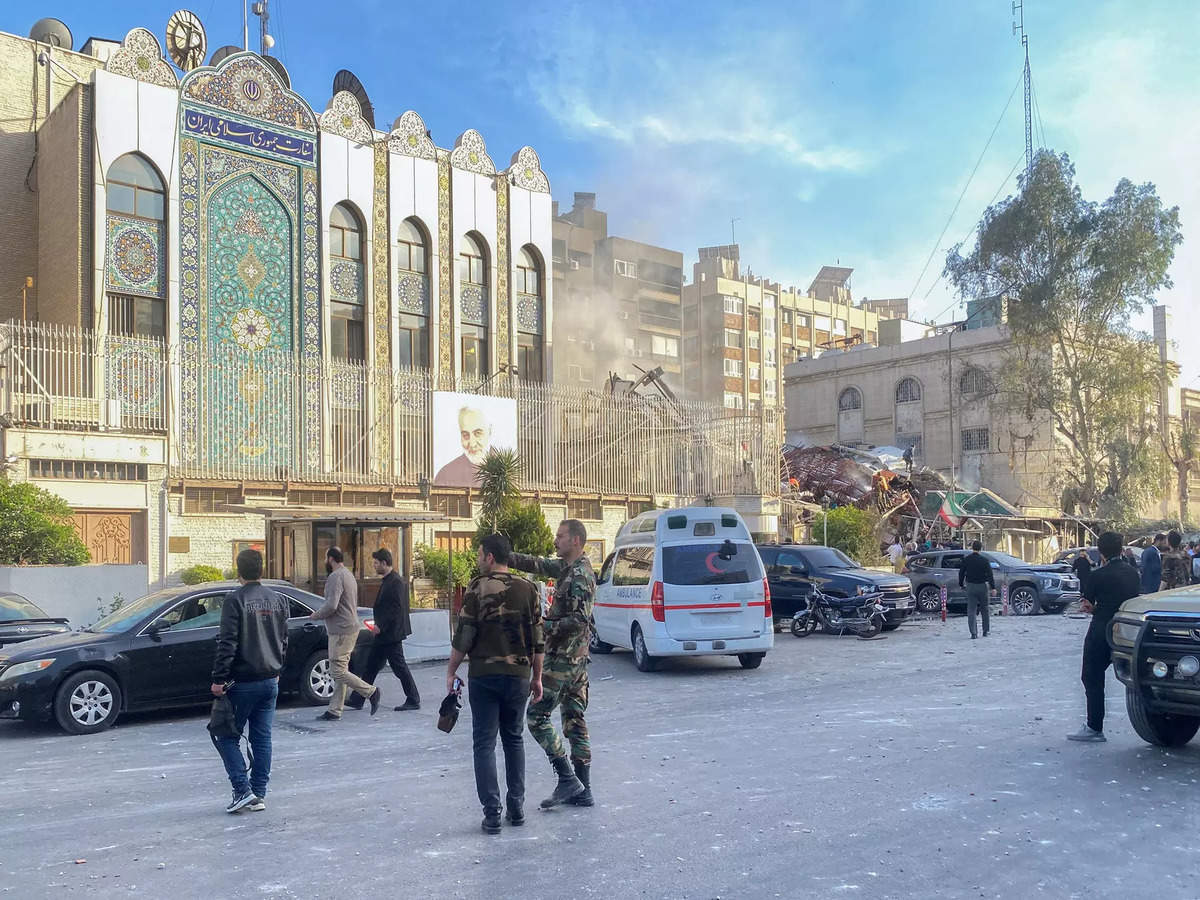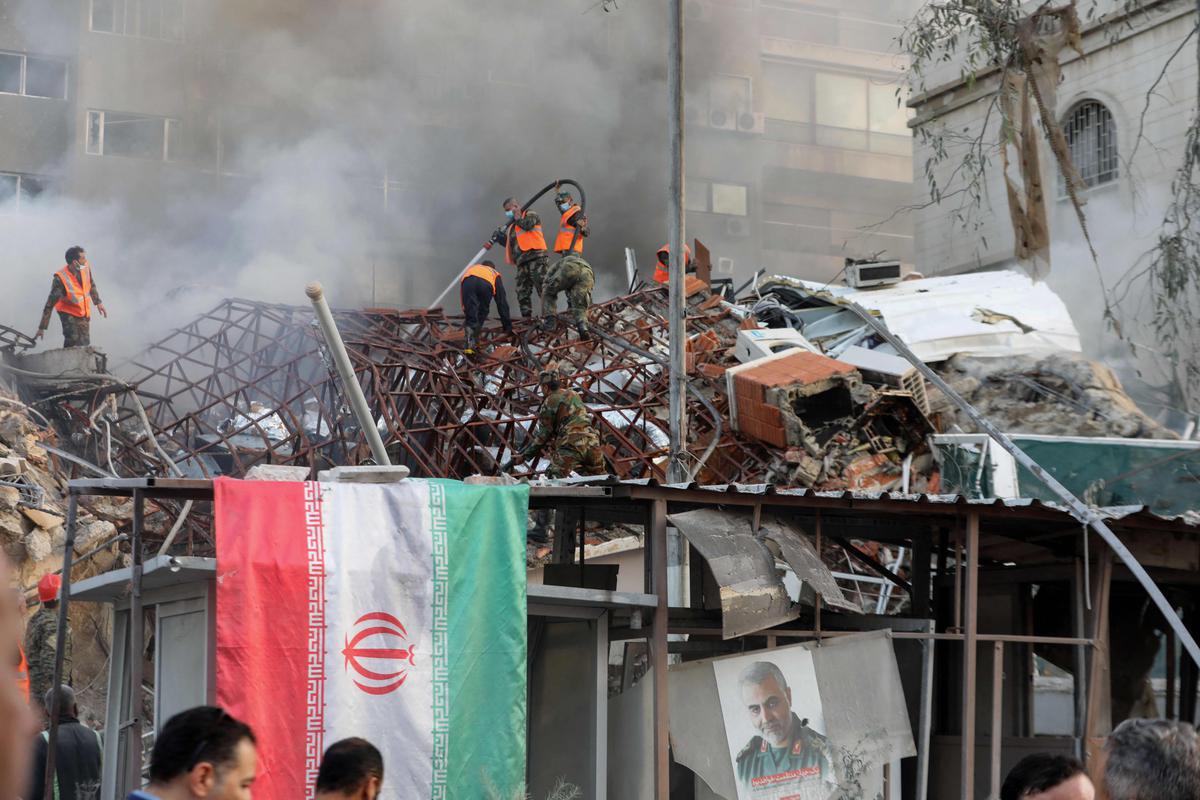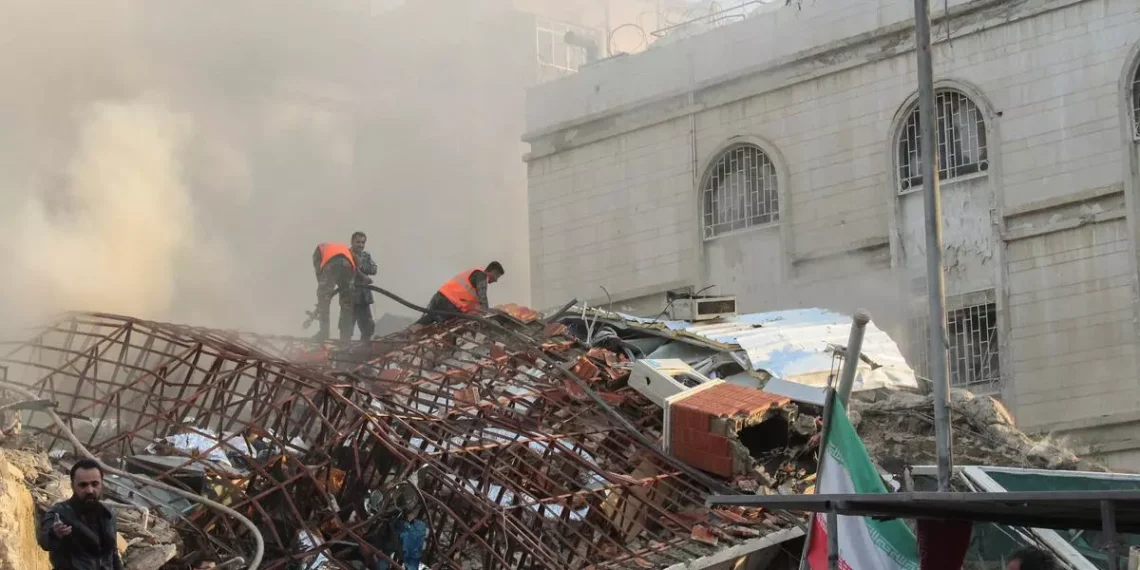Suspected Israeli warplanes bombed Iran’s embassy in Syria on Monday, resulting in a significant escalation of tensions between the two nations. The strike claimed the lives of seven Iranian military advisers, including three high-ranking commanders, marking the first time Israel targeted the embassy compound itself.
The attack occurred in the Mezzeh district of Damascus, where emergency workers were seen moving through the rubble of a destroyed building within the diplomatic compound.

Despite condemnation from Syrian officials and Iran’s ambassador to Syria, who confirmed the strike’s impact on a consular building, Israel remained silent on the operation.
The New York Times reported that four unnamed Israeli officials acknowledged Israel’s involvement in the attack.
Iran’s U.N. mission strongly denounced the strike as a violation of international law and called for condemnation from the U.N. Security Council. Additionally, Hezbollah, a powerful Lebanese group aligned with Iran, vowed retaliation for the attack.
Several Muslim nations, including Iraq, Jordan, Oman, Pakistan, Qatar, Saudi Arabia, and the United Arab Emirates, along with Russia, also condemned the strike.

Analysts expressed varying views on the potential consequences of the attack. Some saw it as part of Israel’s strategy to deter its adversaries, while others warned of a possible escalation in the region.
Jon Alterman of Washington’s CSIS think tank suggested that Israel believes periodic strikes serve as deterrents, while Steven Cook of the Council on Foreign Relations in Washington warned of potential retaliation from Iranian proxies in Iraq and Syria.





